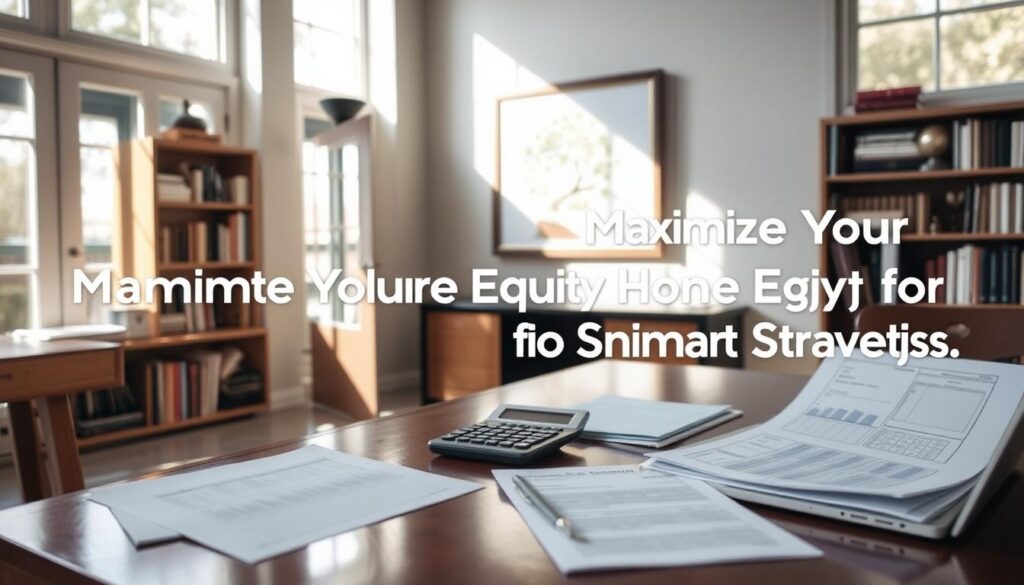One in five U.S. homeowners has used their home’s value to access funds for investments, making home equity a hidden financial tool many overlook. While stocks, bonds, and real estate trusts dominate headlines, home equity investments offer a unique path to growth. Unlike traditional loans like HELOCs or refinances, these agreements let you tap into your property’s worth without monthly payments. Companies like Point and Unison now offer programs where investors share in future home value gains, a model growing in popularity as housing values rise.
Comparing home equity to other options means weighing simplicity against risk. Imagine getting a lump sum today while avoiding interest fees—this is the core of home equity investments. But how does it stack up against stocks, REITs, or savings accounts? This guide breaks down the trade-offs, using real-world data to help you decide if leveraging your home’s value fits your goals.
Understanding Home Equity Investments
Understanding home equity is key to grasping how this asset can grow over time. At its core, it’s the difference between your home’s current worth and what you still owe on loans. Let’s break down how this works.
Defining Home Equity
Your equity is calculated by subtracting your remaining mortgage balance from what your home could sell for today. Imagine a home appraised at $300,000 with a $200,000 loan left. That leaves $100,000 in equity—your stake in the property. This value acts as a financial resource, but it’s not cash until you sell, refinance, or take out a loan.
How Home Equity is Accumulated
Equity accumulation happens in two main ways:
- Mortgage Payments: Every payment chips away at your loan balance. The principal portion increases your ownership share.
- Value-Boosting Upgrades: Renovations like a modern kitchen or energy-efficient windows can lift your home’s resale value, directly boosting equity.
Over decades, these factors turn your home into a valuable asset. Tracking this growth helps plan for major expenses or retirement strategies.
Comparing Home Equity Investment to Other Investment Options
Choosing between home equity investments and other investment choice comparison options starts with clear facts. Let’s break down how home equity investments (HEIs) stack up against loans like HELOCs, cash-out refinances, or traditional mortgages.
Cash Flow Differences: HEIs let you use your home’s value without monthly payments, unlike loans that charge interest every month. For example, a HELOC requires ongoing payments, while an HEI might only need repayment if you sell the home.
- Repayment Terms: HEIs often delay payments until you sell your home, while loans demand fixed monthly payments.
- Qualification: HEIs may require higher equity (like 20%+), whereas traditional loans focus on income and credit scores.
- Risks: Loans add debt, which could affect your credit. HEIs tie your investment directly to home value fluctuations.
When exploring alternative investments, ask: Do you prefer flexibility or structured payments? HEIs offer equity access without daily obligations, but they lock your investment into your home’s value. Loans give immediate cash but add financial commitments.
Next steps? Review your equity, income, and long-term goals. Every investment choice comparison should align with what keeps you financially secure.
Evaluating the Benefits of Leveraging Your Home’s Value
When you consider leveraging home value, two key advantages stand out: tax benefits and long-term growth potential. These factors make your home equity a powerful financial tool compared to other investments.
Tax Advantages
Many homeowners unlock tax benefits through home equity loans or lines of credit. For example, interest paid on loans used for home improvements often qualifies as deductible expenses. This reduces your taxable income, putting more money back in your pocket. Recent IRS guidelines confirm these deductions remain a viable strategy for eligible borrowers.
Potential for Long-Term Growth
- Home values historically rise over time, increasing your equity even without additional investments.
- Reinvesting borrowed funds into property upgrades can boost resale value by up to 12% according to 2023 National Association of Realtors data.
- Equity grows passively as housing markets expand, offering stability compared to volatile stock markets.
Smart leveraging strategies let you turn your home into a wealth-building asset while maintaining control of your primary residence. Always consult a financial advisor to align choices with your unique goals.
Assessing Risks and Limitations
Before diving into home equity investments, understanding investment risks is key. Your home’s equity can bring opportunities, but it also carries unique home equity risks. For instance, if home prices rise sharply, you might owe more than expected when selling. This happens because some agreements split future appreciation with investors, leaving you sharing gains you hoped to keep.

- High repayment costs: Loans tied to home equity often require paying back both principal and interest over time.
- Contract complexity: Fine print may hide fees or terms that complicate your financial plans.
- Appreciation sharing: Agreements might require you to give a portion of future value increases to investors.
Market changes can also impact your equity. If home values drop, your home equity risks grow—leaving you with less collateral. Always review repayment schedules and understand how rising property prices affect your share. Consulting a financial advisor helps clarify these points before moving forward.
Steps to Analyze Your Home Equity Investment
Understanding your home’s potential requires clear steps to avoid mistakes. Follow these actions to analyzing home equity effectively:
Determining Your Home’s Equity
- Calculate your home’s current market value using recent appraisals or online tools like Zillow or Realtor.com.
- Subtract your remaining mortgage balance from the market value to find your equity total.
- Compare this figure to past years to see growth patterns.
Understanding Market Conditions
Local real estate trends heavily impact your equity’s worth. Use this table to track key factors:
| Factor | Impact on Equity |
|---|---|
| Rising home prices | Increases equity value |
| High interest rates | Affects borrowing costs for loans |
| Job growth in your area | Boosts demand for housing |
Consulting Financial Experts
Partner with professionals to avoid oversights:
- Real estate agents for market conditions insights
- Mortgage brokers to explore loan options
- Certified financial planners for long-term strategy
Combining these steps ensures you make informed decisions tailored to your goals.
Alternative Investment Opportunities Explored
When looking beyond home equity, alternative investment opportunities offer diverse paths to grow wealth. Each option balances risk and reward differently, so knowing their strengths helps you pick the right fit.
Stock Market Investments
Buying stocks means owning pieces of companies. They can rise quickly but drop sharply. For example, tech stocks might surge during market booms but fall in downturns. Compare this to real estate, which holds value longer but needs cash upfront. Stocks work best for those willing to ride market swings.
- Pros: High growth potential, easy to buy/sell
- Risks: Volatility, no guaranteed returns
Real Estate Investment Trusts (REITs)
REITs let you invest in property without managing rentals. They pay dividends from rental income and property sales. This makes them a middle ground between owning property and stock market risks. Some REITs focus on malls, offices, or housing complexes.
- Pros: Passive income, diversifies real estate exposure
- Risks: Depend on market cycles, management quality
Bonds and CDs
Bonds and CDs are safer picks. Government bonds offer steady interest, while CDs lock funds for set terms at fixed rates. These are top choices for those prioritizing safety over high returns. For instance, a 5-year CD might give 4% annually, but you can’t touch funds until maturity.
- Pros: Predictable income, low risk
- Risks: Lower returns, inflation may reduce value
Comparing Investment Outcomes and Strategies
Every investment decision shapes your financial future. A strategy review helps clarify which path aligns best with your goals. Let’s break down how different approaches stack up in real-world scenarios.
| Factor | Home Equity Investment | Stock Market | Real Estate Investment Trusts | Bonds/CDs |
|---|---|---|---|---|
| Growth Potential | Slow and steady (linked to home value) | High volatility | Moderate, dividend-based | Stable but low |
| Risk Level | Moderate (depends on housing market) | High | Medium | Low |
| Costs | Closing costs, interest rates | Brokerage fees | Management fees | Minimal to none |
Your investment outcomes rely on matching your timeline and tolerance for risk. For example, home equity offers predictable gains if you plan to stay in your home long-term. Stocks might outperform over decades but require active monitoring.
Regular strategy review ensures your choices adapt to life changes or market shifts. Use this data to weigh trade-offs and prioritize what matters most to you.
How to Decide the Best Option for You
Choosing between a home equity investment (HEI) and other options starts with aligning your personal financial planning with your priorities. Let’s break down the steps to make the right decision for your situation.
Clarify Your Financial Objectives
Begin by defining what you aim to achieve. Are you saving for retirement, funding education, or expanding your home? Personal financial planning requires matching your goals to the investment’s terms. For instance, HEI offers a lump sum with no monthly payments, ideal for long-term goals like renovations or education expenses.
Assess Your Risk Tolerance
Risk tolerance determines how comfortable you are with potential losses. HEI shares your home’s future value, so consider if you can handle market fluctuations. Point’s guide highlights HEI’s 30-year term—ideal for those prioritizing stability over short-term gains. Ask yourself: Can you afford to tie funds into your home’s value?
Plan for Future Scenarios
| Factor | Home Equity Investment | HELOC |
|---|---|---|
| Risk Level | No monthly payments; repayment tied to home value | Variable interest rates; requires income stability |
| Flexibility | Lump sum for specific goals | Revolving credit line |
| Qualification | Lower credit requirements (scores above 500) | Requires excellent credit and income proof |
Use this framework to weigh trade-offs. For example, if you prefer no monthly obligations and have moderate risk tolerance, HEI may suit your personal financial planning strategy. Track your home’s equity and market trends to anticipate outcomes.
Conclusion
As you review your investment conclusion, remember that home equity offers unique opportunities but requires careful consideration. Summarizing investment options like stocks, REITs, and bonds alongside home equity helps clarify their distinct advantages and risks. Home equity provides tax benefits—like IRS-backed deductions on mortgage interest—and potential growth tied to housing markets, but it also carries risks if values decline.
Your decision should reflect personal goals and risk tolerance. Compare long-term gains from home equity loans or HELOCs against the stability of CDs or the volatility of stock markets. Financial advisors often stress balancing these factors to avoid overcommitting your home’s value.
Take time to analyze market trends, consult professionals, and align choices with future plans. Whether you prioritize steady returns or growth, this evaluation ensures strategies match your financial roadmap. Remember, no single option fits everyone—your best path depends on informed choices today for a secure tomorrow.



